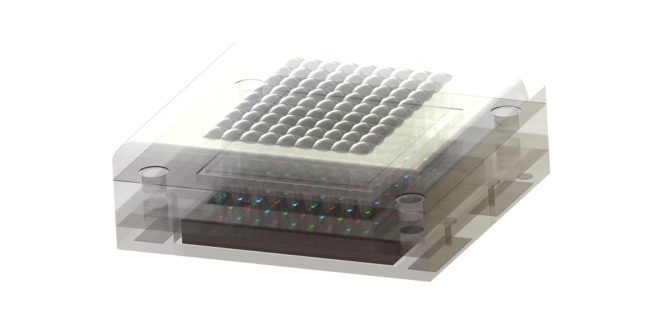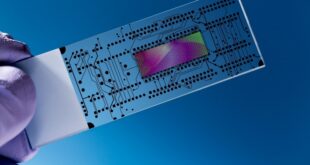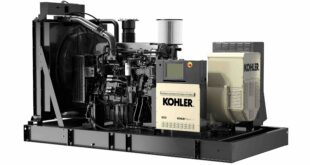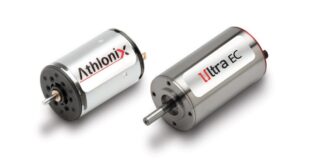Plessey Semiconductors, a developer of award-winning optoelectronic technology solutions, announces it is partnering with Vuzix, a pioneer in the development of technologies for Smart Glasses.
The two companies are partnering to develop the necessary technologies for a new generation of AR Smart Glasses, based around the combination of Plessey’s microLED light source product family, Quanta-Brite, and Vuzix’ extensive expertise and IP in Smart Glasses and essential optic technologies.
Plessey has successfully demonstrated how its monolithic microLED technology can be used to deliver Smart Glasses technology for a wide range of AR and MR (mixed-reality) applications for use both indoors and out.
In addition, Vuzix have already developed an evolving family of Smart Glasses culminating in the Vuzix Blade, the next generation smart display with see-through viewing experience via proprietary waveguide optics.
Formed from glass with precision nanostructures, the waveguide is a key component in an AR/MR product, enabling users to see high-resolution computer-generated graphics, images and information superimposed over images from the physical or real world.
In the development of its next-generation product, Vuzix has selected Plessey’s microLED-based Quanta-Brite light engine, which delivers extremely high efficiency and an improvement in lumen output compared to other light sources currently available on the market.
Quanta-Brite is based on Plessey’s advanced and proprietary gallium-nitride-on-silicon (GaN-on-Si) technology, with an integrated monolithic array of RGB pixels with advanced first level micro-optical elements to create a bright, largely collimated and highly uniform light source for the illumination of DMD and LCOS display engines.
The resulting optical system is up to 50% smaller, lighter, simpler and cheaper than incumbent solutions and the high performance microLED emitters combined with minimal optical system losses result is significantly increased power efficiency.
Size, weight and power reduction are key considerations in AR/MR wearables. Quanta-Brite has been designed specifically for the next generation of Vuzix personal display systems.
“Plessey’s Quanta-Brite microLED technology can be a major enabler of the future of augmented reality,” said Vuzix President and CEO Paul Travers. “As well as delivering high-efficiency, low-power and small-size illumination capabilities, the very high level of luminescence of the Quanta-Brite light source can also enable the development of end products with a sleeker form factor, which is a key attribute of our waveguide based Smart Glasses and critical to mass market adoption.”
“This development with Vuzix, a leading actor in the exploration of next-generation augmented reality, is a significant endorsement of Plessey’s GaN-on-silicon microLED approach,” said Dr Keith Strickland, Chief Technology Officer at Plessey. “Monolithic microLED technology is fast emerging as the only one that can provide high luminance in a very small form factor with minimal energy consumption, necessary for reducing costs and enabling lightweight battery-powered products for a range of emerging consumer and industrial applications.”
According to the Consumer Technology Association (CTA), headsets and eyewear outfitted for AR and VR applications are set for record sales this year of $1.2 billion in the US market alone.
Plessey recently participated at Display Week 2018, an international trade show and symposium that was held at the Convention Center in Los Angeles from May 20th–25th and organised by the Society for Information Display.
At the event, Dr Strickland delivered a paper looking at the future of microLED displays using next-generation technologies.
 Engineer News Network The ultimate online news and information resource for today’s engineer
Engineer News Network The ultimate online news and information resource for today’s engineer






